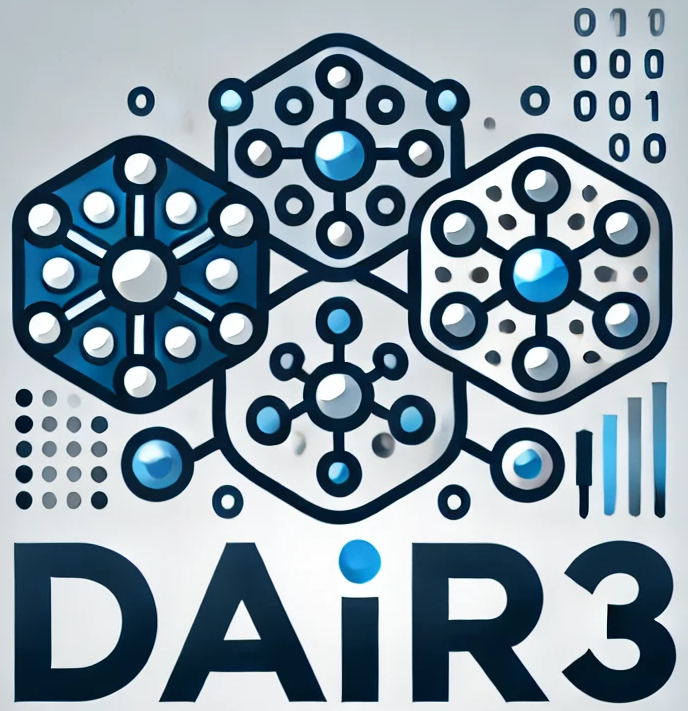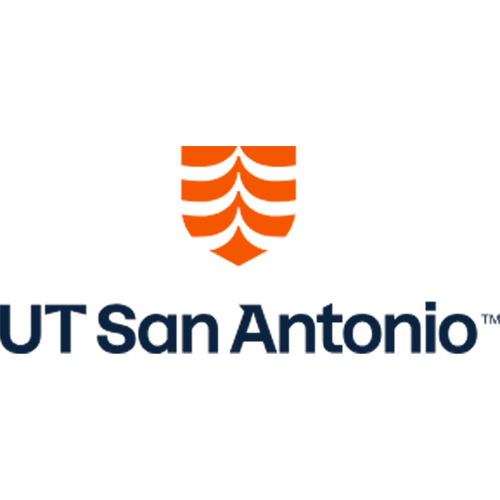Data and AI Intensive Research with Rigor and Reproducibility (DAIR³)

The Data and AI Intensive Research with Rigor and Reproducibility (DAIR3) program includes weeklong bootcamps in the summer that focus on ethical issues in biomedical data science; data management, representation, and sharing; rigorous analytical design; the design and reporting of AI models; generative AI; reproducible workflow; and assessing findings across studies. Additionally, the bootcamp also includes grant writing sessions and research collaboration discussions.
The program has three components:

*CME credit is only available for the bootcamp


At the conclusion of this activity, participants will be able to:
- Design and implement a training program in their home institution that replicates the key elements of this research collaboration training program.
- Carry out better data- and AI-intensive research.



Accepting Applications!
Priority Application Deadline:
Jan. 30, 2026
Develop the intellectual framework and technical skills to ensure the rigor and reproducibility of biomedical and healthcare research with cutting-edge data science and artificial intelligence (AI) methods.
Open to university faculty and research scientists.
Participation in the training program is free of charge. Scholarships are available.
To learn more about the program, visit the curriculum page.
For more information, visit our FAQ.
Session #1
Monday, May 18 – Saturday, May 23, 2026
University of Michigan – Ann Arbor, MI
Session #2
Monday, June 8 – Saturday, June 13, 2026
University of Texas at San Antonio – San Antonio, TX
This activity has been planned and implemented in accordance with the accreditation requirements and policies of the Accreditation Council for Continuing Medical Education (ACCME) through the joint providership of the University of Michigan Medical School and the [organization name(s)]. The University of Michigan Medical School is accredited by the ACCME to provide continuing medical education for physicians. The University of Michigan Medical School designates this live activity for a maximum of 36 AMA PRA Category 1 Credit(s)™. Physicians should claim only the credit commensurate with the extent of their participation in the activity.
For additional questions, please email our DAIR3 program team at: dair3-contact@umich.edu.
Testimonials From Past Bootcamp Attendees
“Learning valuable topics that helped me navigate a successful thesis defense!”
“Enhancing my knowledge about AI and the ability to work with colleagues from other states with various experiences.”
“One of the most meaningful experiences I had during the DAIR³ summer training bootcamp was designing my own course implementation plan that connected advanced data engineering principles with the ethical and reproducible handling of biomedical data.”
“This experience stood out because it pushed me to think beyond just tools and technologies—it encouraged me to incorporate principles like rigor, reproducibility, and data confidentiality directly into curriculum design. I realized that technical excellence means little without ethical responsibility, especially in biomedical contexts.”
“Collaborate with a diverse group of researchers and technical staff from various fields, engaging in intensive learning sessions and discussions.”
“I appreciated the lightning talks to see what everyone was working on and how rigor and reproducibility works into all of our work.”